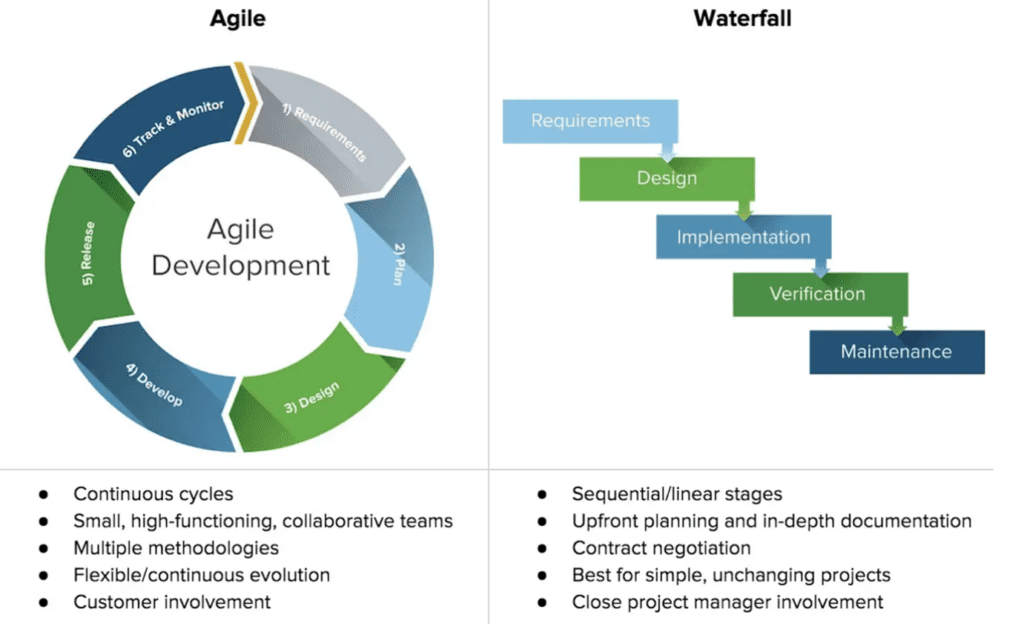What is Agile Software Development?
Agile development is an approach that is a combination of iterative and incremental sequences with a focus on process adaptability and customer satisfaction via a rapid delivery of the working product.
Unlike the more traditional waterfall model previously used in development, where each step is completed sequentially, agile promotes an idea of overlapping phases.

Agile development uses iterative development with incremental releases. Let’s take a look first at what incremental and iterative development methods are.
Iterative process
An iterative process makes progress through successive refinement. The development team develops a first version of the system, knowing that some parts will not be finished. They then iteratively enhance those parts until the product is at the standard they want/need. With each iteration, customer feedback is used and the software is improved by adding more detail.
Let’s take an example of the image below, where the customer isn’t clear and asked the painter to paint a woman in a pastoral setting. The artist will create a sketch, then take the customer feedback to understand and paint the correct picture through multiple iterations:

Incremental process
This involves delivering components of the software in parts. Each increment represents a complete subset of the functionality and is fully coded and tested. If we use the picture example from above again but imagine this time the artist paints it with an incremental process. This time, he knows he needs to paint a picture of the Mona Lisa, and incrementally builds separate parts of the image until it is done.

Agile as an incremental and iterative method
Agile is iterative because it plans for the work of one iterative to be improved upon in subsequent iterations. However, it is also incremental because completed work is delivered throughout the project.

During a development “iteration”, or sprint, where several features are built, some may be iterating to improve, modify or remove existing functionality, while others are incrementally adding new functionality.
Check out some of our upcoming articles on the different Agile terms and features!
Interested in our courses?
Interested in computer engineering? Find out more about all the computer engineering courses we have available by clicking here.
Diploma in Computer Engineering
Diploma in Artificial Intelligence
Alternatively, you can view all our online engineering courses here.
Recent Posts
Aircraft Basics: Main Components and Standard Control Surfaces Explained
Aircraft Basics: Main Components and Standard Control Surfaces Explained Introduction In this blog we will identify the main components within an aircraft, more from the point of view of large external parts, more specifically, flight control surfaces. Flight control surfaces are simply physical devices that the pilot can control and adjust in order to change […]
Understanding and Calculating Generator Efficiency and Output Parameters
Understanding and Calculating Generator Efficiency and Output Parameters Introduction The performance of a generator is often judged by how efficiently it converts mechanical energy into electrical energy. Understanding and calculating this efficiency, along with other key output parameters such as voltage, current, power factor, and load, is essential for evaluating performance and ensuring reliable operation. […]
Essential Cooling and Protection Devices: How They Work and Why They Matter
Essential Cooling and Protection Devices: How They Work and Why They Matter Introduction Generators produce a significant amount of heat and electrical stress during operation, which can affect performance and lifespan if not properly managed. That’s where cooling and protection devices come in. These essential systems, including fans, radiators, circuit breakers, and relays, work together […]

